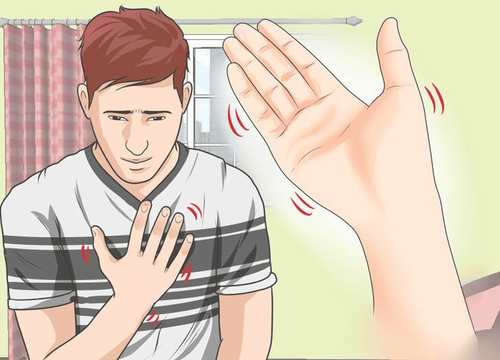This is an automatically translated article.
Epilepsy treatment focuses on 3 main purposes: Control seizures, minimize side effects and restore patient's quality of life. Patients need to understand the type of antiepileptic drug they are using and adhere to treatment to have maximum effect and limit side effects.
1. When should seizure medication be used?
Doctors usually only prescribe anticonvulsants when a patient has at least 2 or more seizures, with the aim of ruling out the first seizure as an incident. If the patient is at high risk for a second seizure, or the seizure could lead to severe trauma, the doctor will prescribe an anticonvulsant right after the first seizure.
Anticonvulsants may cause some unwanted effects and increase risks. Therefore, if the patient does not want to take the medicine every day, the doctor will discuss with the patient when to start taking the medicine accordingly.
2. Factors to consider when choosing antiepileptic drugs?
The choice of antiepileptic drug depends on many factors such as: The type of epilepsy of the patient, the unwanted effects of the drug, drug interactions that may be encountered when used with drugs to treat the underlying medical condition. of the patient, comorbidities, age, pregnancy plan for women of childbearing age, cost....
In order to choose the right drug for each patient, the doctor will adjust gradually adjust the drug and dose. Therefore, in the first period after taking the drug, the patient needs to see a doctor to adjust the dose to find the lowest effective dose. Only about 50% of new patients respond to the drug well from the start. In many cases, it is necessary to change drugs to choose the most suitable one. The right medication for each person is the one that is most likely to prevent seizures and has the fewest side effects. If the patient does not respond to one drug, the doctor will add other anticonvulsants. Combination therapy will be considered after the patient has tried 2 antiepileptic drugs without a good response.
3. Possible undesirable effects when using antiepileptic drugs
The following table presents some common undesirable effects of today's commonly used epilepsy drugs:
| Tên thuốc | Tác dụng không mong muốn thường gặp |
|---|---|
| Carbamazepine |
Nôn ói, tiêu chảy, hạ natri máu, phát ban, ngứa Đau đầu, chóng mặt, mờ mắt |
| Levetiracetam |
Mệt mỏi, nhiễm khuẩn Chóng mặt, lo âu, bồn chồn |
| Lamotrigine |
Nổi mẩn, nôn ói Chóng mặt, run, chứng nhìn đôi |
| Oxcarbazepine |
Nôn ói, nổi mẩn, hạ natri máu Đau đầu, chóng mặt |
| Phenobarbital |
Nôn ói, mẩn ngứa Thay đổi chu kỳ giấc ngủ, thay đổi tính cách, đi loạng choạng |
| Phenytoin |
Phì đại nướu (lợi), mẩn ngứa Lú lẫn, nhìn đôi, đi loạng choạng |
| Valproate |
Tăng cân, nôn ói, rụng tóc, các vết bầm trên da Run, chóng mặt |
Patients should tell their doctor immediately if they have the following signs/symptoms:
Starts to become depressed and has thoughts related to suicide while taking the medicine Fever, blisters, skin rash - Here may be a sign of Stevens-Johnson syndrome - a rare but very severe skin reaction. This syndrome can occur with the use of carbamazepine, oxcarbazepine, phenytoin, lamotrigine and may occur within the first 2 months after taking the drug.
4. Note for antiepileptic drugs to achieve maximum effect
Patients need to take medicine exactly as directed by the doctor. Ask your doctor about the side effects of medications and how to manage them. In particular, before intending to stop taking the drug, the patient should consult the doctor. The drug should not be stopped abruptly because of the increased risk of seizure onset. Anticonvulsants can interact with some prescription drugs, over-the-counter drugs, and dietary supplements. Therefore, consult your doctor about medications or supplements that can be taken while taking anticonvulsants. Limit the use of alcoholic beverages, because alcohol can affect the effectiveness of medications. Drinking too much alcohol also increases the risk of seizures, especially in the days after drinking.
5. Is it possible to get pregnant while taking antiepileptic drugs?
Antiepileptic drugs can affect the health of the fetus and the effectiveness of contraceptives. Therefore, women of childbearing age should consult with their doctor about pregnancy so that the doctor can adjust the medicine or contraceptive method suitable for you.
Neurology Department at Vinmec International General Hospital provides services of examination, diagnosis, consultation and intensive treatment of diseases related to neurological factors. These are the diseases: headache, shoulder and neck pain, lumbar and hip pain, vestibular disorders, dizziness due to cerebral ischemia, sleep disorders, neurological examination and treatment of peripheral 7th nerve paralysis, hemiplegia due to cerebral stroke, dementia, movement disorders such as Parkinson's disease, epilepsy, encephalitis, polyneuritis, degenerative nervous system diseases, neurological infections, peripheral neuropathy borderline, neurotoxicity, metabolic disorder.
When visiting Vinmec Neuroendocrinology Specialist, patients will be examined with a team of experts and experienced doctors, dedicated advice and ready to provide maximum support for patients to achieve effective results. highest treatment.
Please dial HOTLINE for more information or register for an appointment HERE. Download MyVinmec app to make appointments faster and to manage your bookings easily.













